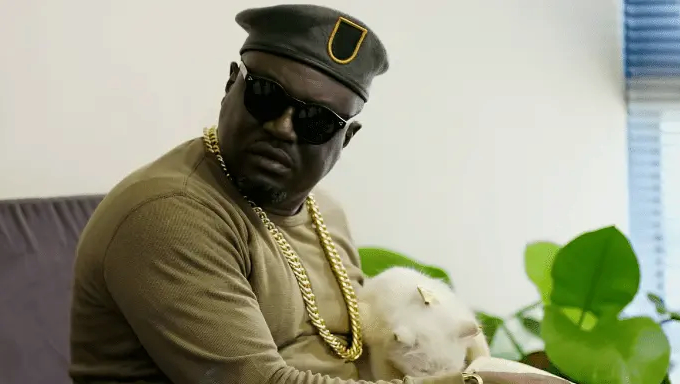Cross-dressing, in recent years, has garnered significant attention in various parts of the world, including Ghana.
This cultural practice, often associated with personal identity and expression, has sparked a heated debate in Ghanaian society, where traditional norms and values are crucial in shaping public perception.
While some view cross-dressing as a form of personal freedom and self-expression, many others see it as a direct challenge to the established cultural and moral framework.
Renowned Ghanaian actor and brand influencer, Mikki Osei Berko, famously known as Master Richard, shared his perspectives on the growing trend of cross-dressing in skits and movies, a topic that has sparked debates within Ghana’s entertainment industry.
When asked about his views on cross-dressing in the creative space, he cited American filmmaker and actor, Tyler Peery.
According to him, cross-dressing is part of the creative process intended to tell a story to audiences.
“Look at someone like Tyle Perry, He’s been an inspiration to me because of his level of creativity and what he does. That is what I think of doing. As for what others are doing, I’m sure they have their reasons, and I can’t comment. But if it adds to creativity, and excitement in the industry, and allows people to show their versatility, it’s all good.”
Mikki Osei Berko
A significant portion of the Ghanaian population identifies as religious, with Christianity and Islam being the predominant faiths.
Many religious leaders argue that cross-dressing is morally unacceptable and contradicts the teachings of their faiths. This has led to calls for stricter regulations against cross-dressing, with some advocating for legal repercussions.
The discourse around cross-dressing often intersects with broader issues of gender and sexuality in Ghana.
Many individuals who cross-dress are identified as part of the LGBTQ+ community, which faces significant stigma and discrimination in Ghana.
The conflation of cross-dressing with homosexuality further complicates discussions, as homosexuality is largely criminalized and socially condemned in the country.
Addressing concerns about crossing conflicting with Ghanaian culture, Berko explained that filmmaking has its own unique culture and standards, adding that such acts are simply to play a role and nothing else.
“Life has gone beyond just thinking culture-based development. Your culture becomes a foundation, but there are other things too. People look at that character and enjoy it. I am not performing that and coming back to real life as a woman or behaving like one. It’s just for the arts, to play a role.”
Mikki Osei Berko
Ghanaian culture is deeply rooted in traditions that emphasize gender roles and expectations. The society is largely patriarchal, and norms dictate specific behaviors, clothing, and roles for men and women.
In this context, cross-dressing is often viewed as a deviation from accepted norms. Many Ghanaians hold strong beliefs about masculinity and femininity, and any challenge to these beliefs can be met with resistance.
Advocacy for Acceptance of Cross-Dressing

Despite the prevailing concerns, there is a growing movement advocating for the acceptance of cross-dressing and broader LGBTQ+ rights in Ghana.
Supporters of cross-dressing argue that Ghanaian culture can incorporate new forms of expression while still retaining its core values.
They point to historical examples of gender fluidity in various African cultures as evidence that cross-dressing is not inherently un-Ghanaian.
Many artists and performers in Ghana use cross-dressing as a form of creative expression. This artistic lens challenges societal norms and encourages dialogue about gender and identity.
Advocates highlight the mental health implications of suppressing one’s identity. They argue that acceptance of diverse gender expressions leads to healthier societies where individuals feel safe and valued.
Mikki Berko illustrated a point by referencing Edyy Murphy’s iconic performance in “Coming to America,” where the actor played multiple roles, including that of an old man and a woman.
“That is a culture of filmmaking, a level of creativity that some of us are trying to adapt to. We’re not just doing it for ourselves; we’re using our culture as a foundation to attract others and help them understand our culture. Sometimes, we need to incorporate elements of their culture to make it easier for them to consume our content.”
Mikki Osei Berko
The debate surrounding cross-dressing in Ghana reflects a broader struggle between tradition and modernity, cultural preservation, and personal freedom.
While concerns about cross-dressing are rooted in deep-seated cultural and moral beliefs, there is also a growing recognition of the importance of individual expression and the need for dialogue.
As Ghana continues to navigate these complex issues, fostering understanding and tolerance will be crucial in shaping a society that respects both its cultural heritage and the rights of its diverse population.
The future of cross-dressing in Ghana will likely depend on the ongoing conversations between traditionalists and progressives, as both sides seek to define what it means to be Ghanaian in an increasingly globalized world.
READ ALSO: Oliver Barker-Vormawor Criticizes Parliament’s Failures























